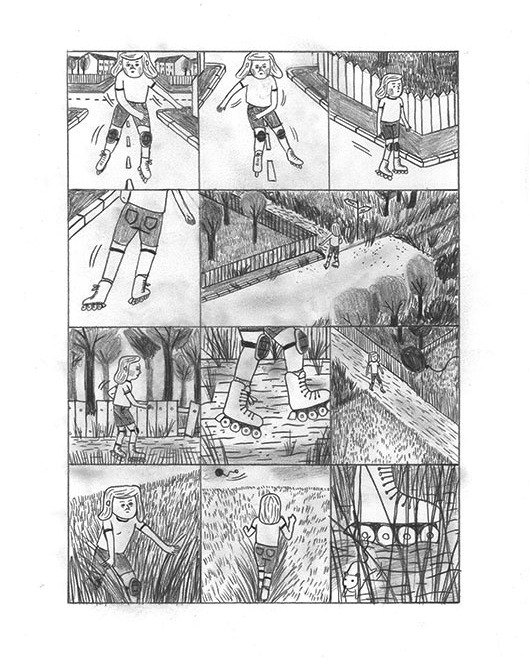Posts Tagged ‘earthling’
Music Time: David Bowie – Brilliant Adventure (1992-2001)
December 12, 2021The 1990s albums reissued here, however, tell the story best. After a period in the pop-music wilderness, this is the decade during which Bowie reasserted his role as the godfather of alternative music, in pretty much any form it took. (The missing link between this box set and its 1980s equivalent Loving the Alien are the two records he recorded with his unjustly reviled rock band Tin Machine; I’ll just say “Justice for ‘You Belong in Rock n’ Roll’” and leave it at that.) Accusations of trend-hopping dogged Bowie at the time, for reasons that now feel increasingly silly—who wouldn’t want to hear him take a stab at industrial or jungle? This is the kind of genre play that paid dividends with his avant-jazz inflected swan song Blackstar, two decades later.
Comics Time: Earthling
November 12, 2014Aisha Franz’s faces are an architectural marvel. Their features bunch up in the center of great round white circle heads crowned with hair that looks sculpted from clay. They’re bookended by apple cheeks drawn with a perpetual blush rendered as circular gray scribbles, as though a physical ordeal or an uncomfortable emotion were always only scant seconds in their past. Eyebrows, wrinkles, creases, and smile lines push the eye toward the beady eyes and pug noses they ring. (The look is very Cabbage Patch Kids, but there’s a reason those weird-looking things made millions.) They broadcast emotion from the center of the head like a spotlight focused down into a laser — curiosity and confusion, peevishness and puckishness, boredom and loneliness and anger and, very occasionally, satisfaction and delight. In a book where Franz’s all-pencil style — the lack of inks and the deliberately boxy and rudimentary props and backgrounds suggesting a casual, tossed-off approach completely belied by Franz’s obvious control of this aesthetic — works very well, those faces work best of all.
The story is another matter.Earthlingtells the not-quite-multigenerational tale of a suburban mother and her two daughters — one on the cusp of puberty, the other of college. The book derives its title from the storyline of the younger daughter, who encounters and attempts to befriend an alien visitor she hides in the toy chest in her room. But it’s equally concerned with her older sister, who’s negotiating the needs of an estranged best friend, a physically eager but emotionally aloof suitor, and an absent father whose scheduled return is impending; and with their mother, who alternately seeks to discipline and connect with them while pondering a turning point in her own past. None are happy; all deal with their unhappiness alone. That’s the only choice allowed them in the book’s closed emotional system. Franz casts every supporting character as mean, manipulative, or oblivious. She paints her protagonists with a similar palette, or at least portrays them as so fixated on their own difficulties that they are useless to one another. Thus the storytelling deck is stacked against each to such a degree that we are forced to come to the same conclusions they do: no one understands them, the situation is hopeless, and only rash renunciations of responsibility or intercession by a well-timed savior can liberate them. Perhaps inadvertently,Earthlingteases out the undercurrent of narcissism that those of us who suffer from depression often suspect, and fear, helps fuel those gray-pencil periods in our lives, but only to reinforce it.

